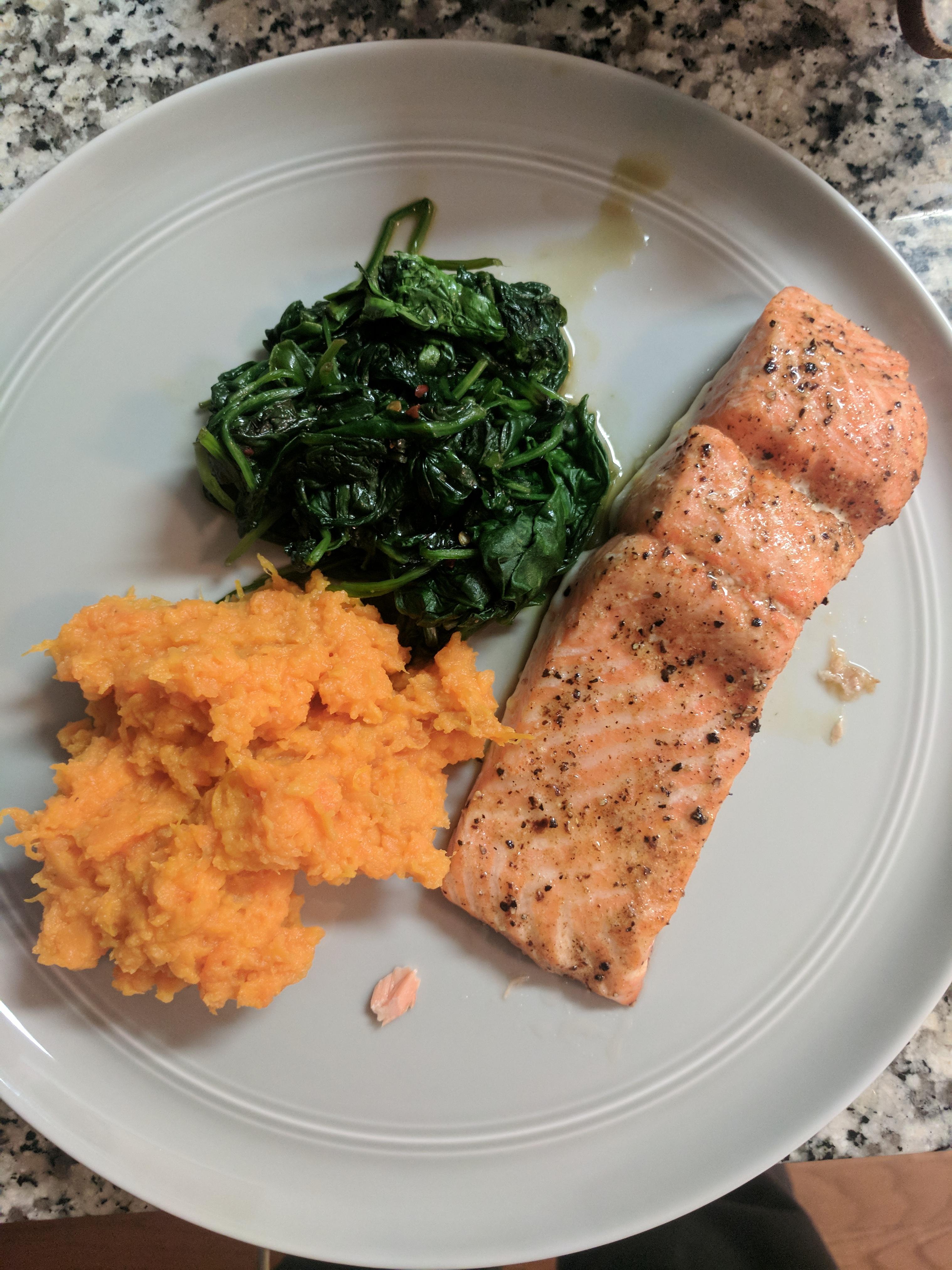The topic of estrogen in men on TRT has become quite a topic during the last couple of years. Many have stern stances on one side or the other, whether pertaining to total estrogen or the use of A.I. (aromatase inhibitors).
This article isn’t here to take a stance on any of that but rather to simply highlight some of more common culprits that often contribute to high lab values of estrogen. And also, how one may be able to address it on their own aside from (or in addition to) medical intervention or medications when in pursuit of optimized harmony, wellness and happiness revolving around endocrinology.
What Are Some Symptoms of High Estrogen in Men?
- Gynecomastia - aka; “man boobs”. This does not always, come from excessive estrogen but does in some men.
- Excessive fat that deposits easier (and more) - especially around chest and hips/butt.
- Water retention.
- Depression.
- Erectile Dysfunction.
Why Do Men Have High Estrogen?
- Overworked Liver. High ALT counts are often reflective of a fatty liver or at least a warning sign your liver is getting clogged up with fat and is being inhibited from doing its job(s) effectively. This affects the liver’s ability in so many ways, including being able to handle excessive levels of estrogen and contribute to endocrine balance.
- Over stressed body and endocrine system. Too much stress and not enough sleep triggers a lot of cortisol to be released into our body. This in turn, has a detrimental effect in many facets and systematically within our body - too many to mention here. But as it pertains to this topic of discussion and in short, this inhibits our body’s ability to keep balance with and between our hormones, including estrogen.
As the body responds to high levels of stress, it “steals” progesterone to manufacture the stress hormone cortisol, often contributing to an excess of estrogen. Maintaining poor sleep habits can lead to a reduction in the hormone melatonin, which also helps to protect against estrogen dominance.
- Alcohol. This tends to flow with stress, so it is going next in line here. When we expose our liver to this on a regular basis or bombard it periodically with an episode of binge drinking here and there, it is then priority number one to the liver to tackle this alcohol, metabolize it and get it out. All other functions of the liver (and there a lot) get put on the back end when this happens. In short; alcohol can trigger an even bigger increase in cortisol and can also change the way our body metabolizes estrogen and therefore, how estrogen works in the body.
- Insulin Resistance & Obesity. Primarily a consequence of poor lifestyle and nutrition habits over time, insulin resistance is connected to the excessive and over activation of aromatase action - an enzyme responsible for converting testosterone to estrogen in the human body.
- Zinc Deficiency. Zinc supports minimizing the action of aromatase. When levels of this mineral are low, more testosterone is able to be converted to estrogen. Abusive consumption of alcohol also contributes to zinc deficiencies.
- Prescription drugs.
- Excessive & regular Exposure to Foreign Substances. These are substances that act as weak xeno-estrogens once inside the body... These have a similar structure to estrogen and attach to estrogen receptors and therefore disrupt real estrogen’s ability to latch on here where they need to and it then disrupts healthy estrogen function and endocrine harmony. Most endocrine disruptors also store in our fat. So, the more fat one carries on their body, the higher the probability of having excess estrogen in the body. Ahh, the irony… and the vicious cycle - right?
Furthermore, consumption of toxic foreign substances can have a negative effect on our gut microbiota (bacteria). Our gut and all if it’s bacteria, is the first in line to be exposed to all that we consume, good or bad. When we expose the gut to toxic substances - especially if on a regular basis, this inhibits our ability to defend the rest of the body from infections, inflammation and prevents the effectiveness to assist in endocrine balance to name just a couple of hundreds of roles. This is a story book of its own.
We Have a Need for Nutritional Endocrinology
Most doctors hardly receive any nutritional education. It is therefore very rare for the patient to receive any nutritional intervention and integration from their doctor into any treatment plans that address disease or any of their health concerns.
In the modern western world, it is most common to see the approach that there is a pill for every ill. This is a simplified blanket statement of course, but sadly holds a lot of truth.
- Can't sleep? Take this Lunesta.
- Have high cholesterol? Take this statin drug.
- Have depression? Here, take this SSRI drug to help you feel happier.
Some of these medications are literally lifesavers and the absolute best option for some. For others, maybe not so much without consideration of other interventions or approaches first.
Many of these health concerns and more may be addressed best with learning how to exercise with correct diet intervention. It is not to say that drugs do not have their place in some scenarios though.
This is where we can look at each individual and their unique set of circumstances they are working with or against, to determine if a drug is appropriate or not and if it would be helpful short term to get the patient moving into a better situation sooner than later.
This however, takes some accountability with both (especially) the patient and doctor to do right and cause no harm.
What We CAN Do To Support Healthy Estrogen Balance
Step #1: Eat REAL food first!
First and foremost, do no harm… Avoid highly processed and hyper palatable foods that come in boxes, bottles, bags or drive-thrus. These are typically overloaded with calories we don’t need while being void of any nutritional value.
Eat the rainbow, with an emphasis on cruciferous vegetables.
These powerhouse foods provide tons of value with antioxidants, phytonutrients and fiber that support so much. Starting in our gut, these foods support healthy gut microbiota or bacteria which then enables the body to keep inflammation in check while helping our immune system to thrive.
This all encompasses our organs and endocrine system as mentioned earlier here as well. The list of benefits is long and in short, this is a critical component of great health. 
Step #2: Reboot your gut
This would most likely involve the following for most:
- Remove allergens, pathogens and anything your body is sensitive to.
- Replace and optimize our intake of fiber, missing nutrients and enzymes.
- Repopulate good bacteria in the gut. A high quality probiotic may help accelerate this.
- Repair gut lining. If there has been inflammation in the gut, considering L-Glutamine may help with faster healing of the gut lining.
- Activated Charcoal is an honorable mention here if applicable. Helps to remove organic pesticides and harmful bacteria. This may be beneficial if you know you’re going to be traveling or eating somewhere where the food is suspect with less than acceptable sanitary conditions.
Step #3: Reduce Stress
Easier said than done, no doubt. However, if chronic stress is plaguing you and your health then addressing it and learning how to reduce it needs to be prioritized. If we really step back, turn off technology and analyze, we should be able to recognize how we can approach addressing stress.
Learning how to meditate for 15 minutes each morning after waking up can be a positive way to start one’s day. Prioritizing and scheduling 30 minutes for your fitness into your busy schedule 3-5 times per week will equate to not only reducing stress but receiving hours of increased cognitive abilities, energy and of course as it pertains to this article - a helpful contribution to our body, hormones and wellness.
Step #4: Strive for Optimal Body Composition
Having and maintaining a healthy body fat to muscle ratio can be a contributor (good or bad) to estrogen and overall endocrine balance. This is often also exacerbated when coupled with other commodities and/or imbalanced lab markers.
Engaging in regular strength training workouts helps tremendously here. And of course, don’t forget to consume an appropriate caloric diet consisting of healthy, colorful foods! 
Conclusion
Health, wellness and medicine is never a one size fits all. What "fits" you may vary a bit from the next guy but these are some of the more common things to consider and if necessary, explore.
And if you're interested in knowing more or pursuing a program with YOUTH-Rx to optimize your hormones if effort to look and feel your best, simply let us know how we may be able to assist you by scheduling a call today at the link here below:
Stay fit and healthy friends!
Roger and the YOUTH-Rx team
References:
- https://pubmed.ncbi.nlm.nih.gov/29177978/#:~:text=Results%3A%20It%20is%20demonstrated%20that,to%20endotoxemia%20and%20systemic%20inflammation.
- https://rbej.biomedcentral.com/articles/10.1186/1477-7827-9-93
- https://www.liebertpub.com/doi/10.1089/jmf.1998.1.67
- https://www.mayoclinic.org/diseases-conditions/gynecomastia/symptoms-causes/syc-
- 20351793https://pubmed.ncbi.nlm.nih.gov/429508/
- https://www.nature.com/articles/ijir200842



